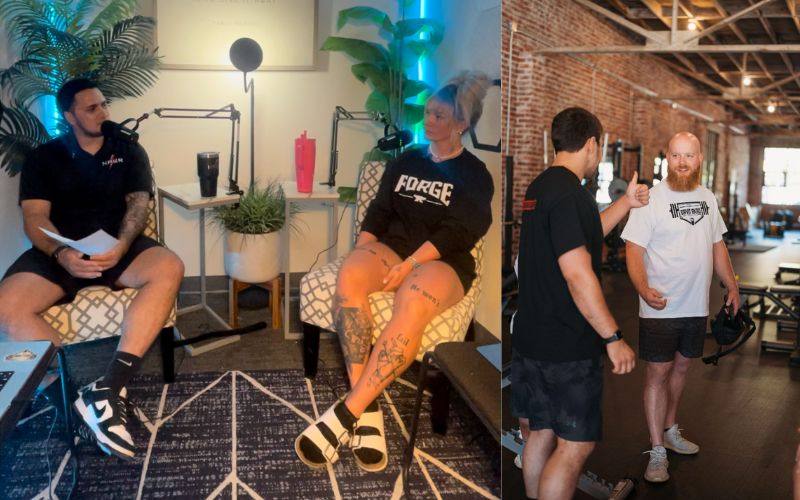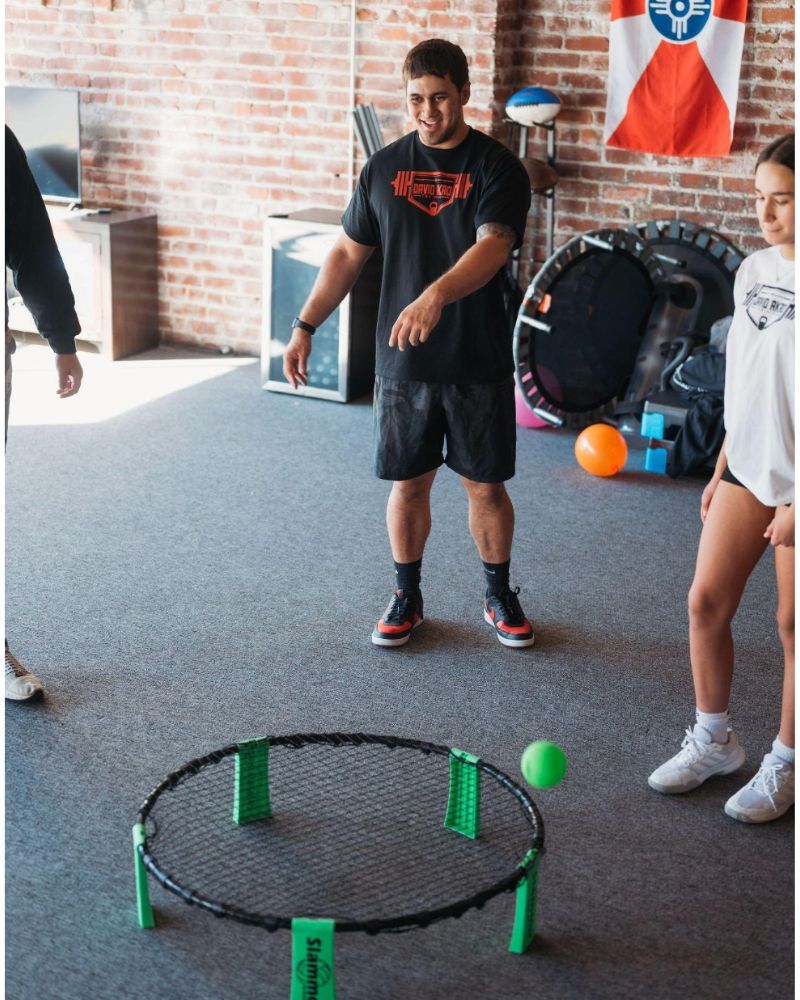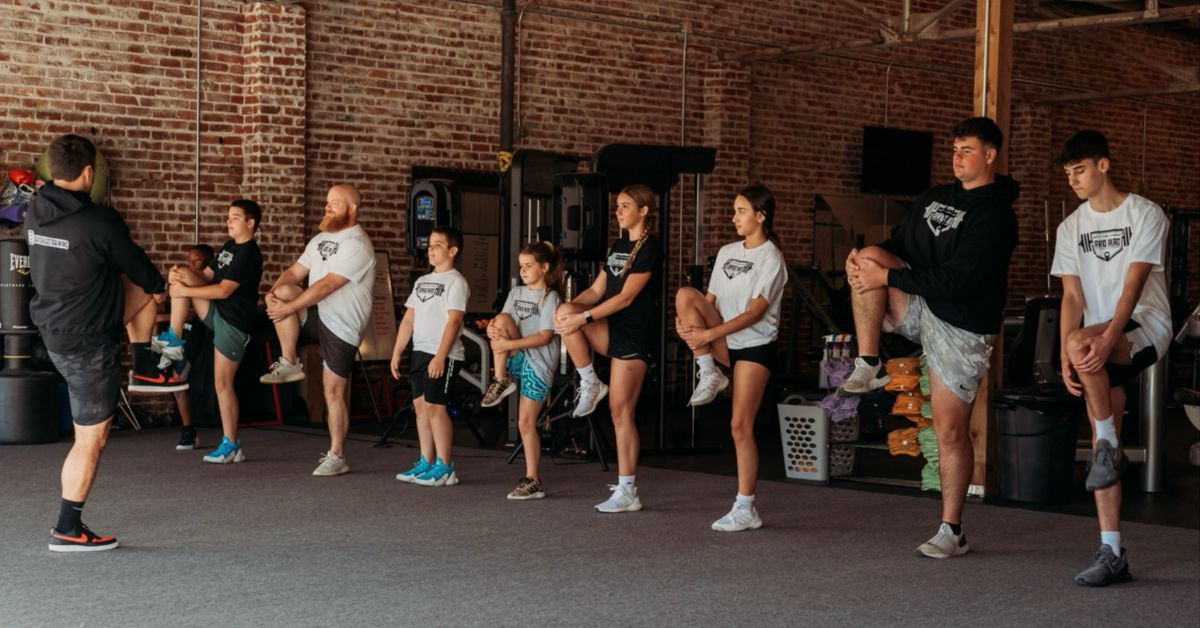In a field where high energy and extroverted traits often come with the territory, being an introverted trainer can sometimes feel like an uphill battle. But, through my experience, I’ve discovered that embracing my introversion and using it as a unique strength has not just been empowering, but essential to creating authentic, lasting connections with clients.
If you’re an introverted trainer navigating a profession that demands a lot of energy, here are some lessons I’ve learned that can help you build a fulfilling career while staying true to yourself.
If you’re an introverted trainer, remember that your introversion is not a barrier but a powerful strength that can set you apart and bring genuine value to the clients you serve, says @trayner_dave. Share on XEmbrace Authenticity
One of the first things I learned as a trainer was that authenticity is my biggest asset. Early on, I felt pressured to act more extroverted, thinking that it would attract clients and boost energy in sessions. But every time I tried to hype myself up, it felt forced and exhausting. I remember once attempting to lead a warm-up with high-energy shouts and exaggerated gestures, hoping it would create excitement. Instead, it felt like I was playing a role, and I could sense my own discomfort growing with each forced cheer. Eventually, I realized that my clients didn’t need me to bring over-the-top energy—they needed me to bring myself.
My grounded, calm presence became something they could rely on, and staying true to my personality built a foundation of trust and comfort. Clients are much more responsive when they feel they’re connecting with a real person rather than a persona. Authenticity not only enhances your relationships, but it also sets a powerful example of self-acceptance, inspiring clients to embrace their own strengths and quirks.
Introverted clients often feel more comfortable with a trainer who doesn’t overwhelm them with constant chatter or excessive energy, says @trayner_dave. Share on XOwn Your Introversion
Introversion is often seen as a barrier in high-energy fields like personal training, but it’s really just a different set of strengths. Interestingly, many of my clients are introverts too, and that common ground helps us build a bond that goes beyond the typical trainer-client dynamic. They value my ability to listen and understand where they’re coming from. Introverted clients often feel more comfortable with a trainer who doesn’t overwhelm them with constant chatter or excessive energy. I’ve found that being more reserved actually helps me create a relatable, approachable environment that draws people in naturally.
If you’re an introverted trainer navigating a profession that demands a lot of energy, here are some lessons I’ve learned to help build a fulfilling career while staying true to yourself, says @trayner_dave. Share on XFor example, I had a client who was initially nervous about starting training. She confided that she’d tried other gyms but felt too intimidated by the energy. Working with me allowed her to feel safe and comfortable. That experience reaffirmed to me that introversion isn’t a limitation; it’s a valuable asset that many clients appreciate.
Leverage Your Strengths
If you’re like me, you might feel out of place marketing your services through traditional methods like handing out business cards or striking up conversations in public. Instead, I focus on areas where I excel naturally, like social media. Over the years, I’ve developed my social media skills and even earned a reputation as a bit of a “social media guru.”
By sharing my journey and training philosophy online, I attract clients who connect with my authentic approach before they even meet me. This online platform has allowed me to grow my business without the stress of pushing myself into uncomfortable, high-energy networking events. Finding the right channel for your marketing is key as an introvert, and digital platforms can be fantastic tools for that.
Invest in Self-Development
Self-development has been critical to my journey as an introverted trainer. Knowing that communication and leadership are essential skills, I’ve dedicated a lot of time to reading, learning, and applying knowledge in areas like business management, sales, and personal development. Improving my listening skills, in particular, has been a game-changer. One book that had a big impact on me was Quiet: The Power of Introverts in a World That Can’t Stop Talking by Susan Cain. It helped me understand the strengths of introversion and how to leverage them in my work. Books like this have guided my approach, allowing me to connect with clients more deeply and lead with authenticity.
Listening doesn’t just help me understand my clients’ needs; it also shows them that I genuinely care. Investing in these skills has strengthened my connections with clients and given me a level of confidence I didn’t have starting out. Continuous self-improvement helps you stay grounded in your strengths and expand your skill set without changing who you are at the core.
Network on Your Terms
Networking can be overwhelming, but as an introvert, I’ve learned to approach it in ways that feel comfortable to me. Instead of attending large events, I focus on smaller, one-on-one meetings. This approach allows me to form genuine connections without feeling drained.
I’ve also noticed that the connections I make this way are more meaningful and long-lasting, as we’re able to communicate openly and authentically. Rather than trying to force yourself into traditional networking situations, find the format that lets you connect authentically, whether that’s through coffee chats, virtual meetings, or even social media.

Stand Out in Your Own Way
As an introverted trainer, standing out doesn’t have to mean being the loudest in the room. One tactic that’s worked for me is incorporating humor into my personal style. I often wear shirts with funny fitness-related slogans like “Back & Body Hurts” or “Keeper of the Gains,” which tend to make clients laugh and help break the ice.

I remember one session where a client was feeling especially anxious, but my goofy shirt sparked a smile, and we ended up laughing about it throughout the workout. Small touches like this make a big difference in helping clients feel relaxed and ready to engage.
Start Lighthearted Conversations
Initiating conversation can be tough, especially in a training environment where clients may come in feeling nervous or unsure. I’ve found that light topics, like food or a playful icebreaker question, usually work wonders. Everyone loves sharing their favorite cheat meal, and it creates an easy, friendly atmosphere that helps clients open up. Once, I asked a client what their favorite post-workout meal was, and we ended up in a long, animated discussion about local restaurants. That small exchange turned into a bonding moment that carried over into more comfortable, productive training sessions.
As an introverted trainer, standing out doesn’t have to mean being the loudest in the room. One tactic that’s worked for me is incorporating humor into my personal style, says @trayner_dave. Share on XThis approach isn’t unique to training; other professions where you’re working with a “captive audience,” like barbers, dental assistants, and rideshare drivers, often rely on conversation to build rapport. A barber might start with, “Any big plans this weekend?” while a dental assistant might ask, “Any recent vacations?” These kinds of simple, relatable questions can go a long way in making people feel at ease.
For trainers, the takeaway is to keep it light and genuine—pick topics that encourage clients to share a little about themselves without feeling put on the spot. Avoid overly personal questions early on, and instead focus on universal interests, like food, hobbies, or local events. This approach helps build trust and comfort, setting the stage for stronger connections and better training sessions.
Bring Energy in Your Own Way
There’s a common misconception that introverts don’t bring energy—but that’s simply not true. We just channel it differently. Rather than adopting a high-energy, cheerleader vibe, I create excitement through activities that naturally build camaraderie, like team-building games or friendly competitions like spikeball and tug of war. These interactive elements keep clients engaged and motivated, allowing me to infuse fun into sessions without feeling pressured to be someone I’m not. Clients can sense my genuine enthusiasm, but in a way that’s true to my personality and strengths as an introvert.

Schedule Recharge Time
To perform at my best, I’ve learned to protect my energy by setting boundaries and creating space to recharge. After a full day of sessions, my social battery is often low, so I take time to rest, sometimes splitting shifts or scheduling breaks between clients.
This approach helps me stay refreshed and ready to give my full attention to each client. Burnout is a real risk in this field, so making time to recharge isn’t just a luxury—it’s essential.
Let Go of Overthinking
When I started out, I sometimes held back because I worried about how others would perceive me. But with time, I learned that missing opportunities due to fear of awkwardness or failure only holds you back. Real growth happens when you put yourself out there, even if it feels uncomfortable. Early in my career, I had to push past those fears and start somewhere. I now realize that it’s the small, sometimes awkward beginnings that lead to bigger things.
Embrace Discomfort and Gain Experience
Leading sessions and speaking in front of groups used to make me nervous, but the more I did it, the more natural it became. Now, these once-dreaded activities are simply part of my day-to-day routine. Repetition is key; no amount of theory can replace the value of hands-on experience. Each session, consultation, and even rejection has made me a better trainer, equipping me with the skills I need to succeed.
Clients are much more responsive when they feel they’re connecting with a real person rather than a persona, says @trayner_dave. Share on XThrough my journey, I’ve found that introversion isn’t something to be overcome, but rather a quality to be embraced and leveraged. By being true to myself, investing in skills that matter, and finding unique ways to connect with clients, I’ve built a fulfilling and successful career on my own terms. If you’re an introverted trainer, remember that your introversion is not a barrier but a powerful strength that can set you apart and bring genuine value to the clients you serve.
Since you’re here…
…we have a small favor to ask. More people are reading SimpliFaster than ever, and each week we bring you compelling content from coaches, sport scientists, and physiotherapists who are devoted to building better athletes. Please take a moment to share the articles on social media, engage the authors with questions and comments below, and link to articles when appropriate if you have a blog or participate on forums of related topics. — SF




